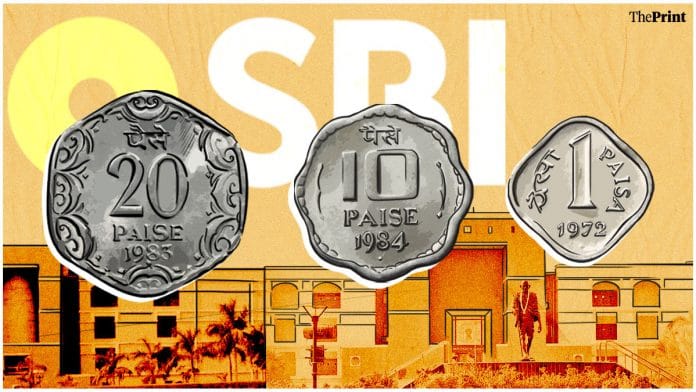New Delhi: Thirty-one paise. For over two years, that’s all that stood between Rakesh Ishwarbhai Verma and Manoj Ishwarbhai Verma of Gujarat, and a 79-acre piece of agricultural land they bought in Zolapur village of Ahmedabad’s Sanand taluka in December 2019.
The reason? The lack of a ‘no-dues certificate’ from the State Bank of India to the previous owner.
A ‘no-dues certificate’ is a document that banks issue to say that a borrower has repaid a loan in full and that there are no pending dues. Without SBI’s certificate, the brothers’ application before the revenue department to transfer the land’s ownership to their names was rejected.
After completing the transaction for the land, and finding it out of hand, the Vermas knocked on the doors of the deputy collector. Three notices were issued to the bank, but none were answered. Then, in December 2020, they filed Special Civil Application number 15691 in the Gujarat High Court, requesting a direction to the bank to accept the pending amount, so that they could get ownership of the land.
Finally, on 2 May 2022, the court finally directed the SBI to accept the pending 31 paise and thus start the process to transfer the ownership of the land.
Also Read: 43,000 arbitration execution pleas are pending in UP. Hundreds are decade-old, one’s from 1981
‘Bank declined to accept cheque’
In their petition, filed through advocate Jinesh H. Kapadia, the Vermas said the previous owners of the land had taken two loans of Rs 4.55 lakh from the SBI. The petition named seven borrowers: Shamjibhai Pashabhai, Dhanjibhai Pashabhai, Dungarbhai Pashabhai, Manjuben, Ratilal Ladhrabhai, Dineshbhai Ladhrabhai, and Kailashben Ladhrabhai.
The petitioners said they “approached the respondent bank (SBI) many times and inquired about the dues and also given cheque of due amount”, but that the “bank manager under one or the other pretext declined to accept the same and given frivolous excuses (sic)”.
The petitioners said they approached the Deputy Collector in September 2020 but three notices issued to SBI — the last one on 16 September 2020 — asking it to accept the dues went unanswered. “Neither any reply has been given by the bank not amount has been accepted (sic),” the petition said.
The petitioners finally approached the Gujarat High Court in December 2020.
Also Read: A murder & long wait for justice: Why it took SC nearly 12 years to uphold one man’s life term
Court’s reproach, bank’s defence
The case came up before the Gujarat High Court 15 times, before the court finally disposed of it on 2 May this year.
During the penultimate hearing on 27 April, the court reproached the bank for not issuing the no-dues certificate.
“Call your manager here,” Justice Bhargav D. Karia, who was hearing the case, snapped at the bank’s counsel, advocate B.B. Gogia. “The Banking Regulation Act provides that anything less than 50 paisa is not to be counted (as outstanding dues). Call him (the manager) here.”
RBI circulars advise banks that “all transactions… should be rounded off to the nearest rupee; i.e. fraction of 50 paise and above shall be rounded off to the next higher rupee and fraction of less than 50 paise shall be ignored”.
Justice Karia went on to ask SBI’s lawyer: “Why are you harassing the people… It is nothing but harassment by your manager… It is too much. Nationalised bank and at 0.31 you say that ‘no due’ will not be issued”.
A day later, the SBI issued a no-dues certificate.
However, in an affidavit filed on 30 April, the bank called the contentions in the petition “absolutely false, frivolous and vexatious”, and went on to justify its action.
The bank told the court that the loan had become a non-performing asset in 2018 but the previous owners began to repay the loans in instalments from July 2019. The final instalment was paid in January 2022.
The SBI claimed that one of the borrowers had also objected to the petitioners’ application before the revenue authority. This borrower also wrote to the bank claiming that “there were family disputes and that no money should be accepted from any outsider and that a No Due Certificate should also not be given to any other person other than the borrowers themselves,” the affidavit said.
The SBI also told the court that it had issued the ‘no-dues certificate’ on 28 April “after contacting the borrowers and taking them into confidence”.
(Edited by Uttara Ramaswamy)
Also Read: Bail ordered 19 months ago, but murder convict freed only now after another SC intervention






